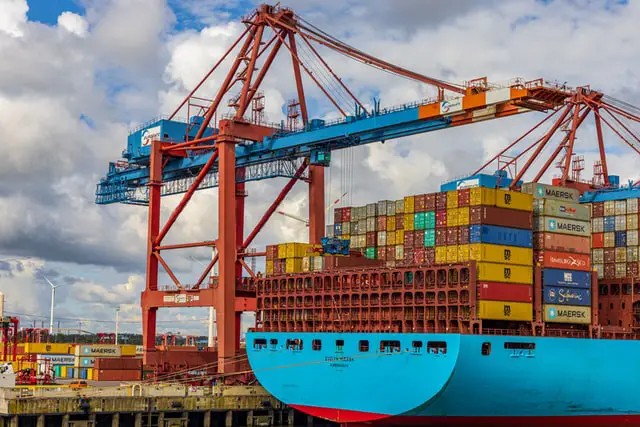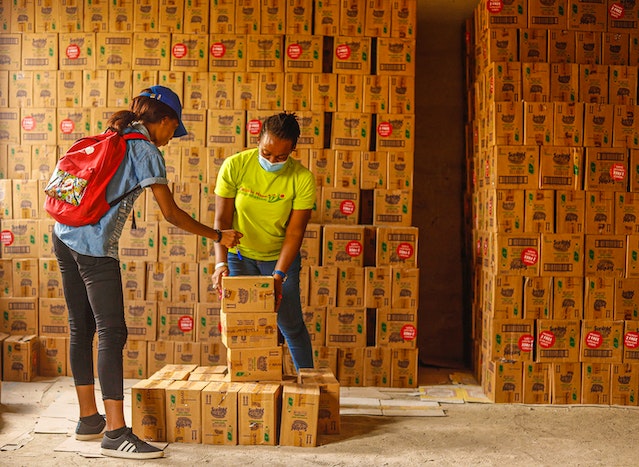Embarking on the international journey of shipping a parcel from the UK to Nigeria can be both exciting and daunting.
Despite any apprehension, becoming well-versed in the intricacies of international shipping regulations is a crucial first step.
Knowledge in this area ensures that your items comply with customs rules and pass through border checks smoothly, avoiding inconvenient and potentially costly delays.
As you begin this journey, you must equip yourself with a fundamental understanding of what it takes to navigate global logistics, from selecting a dependable shipping carrier to properly preparing your package for its journey overseas.
Table of contents
Understanding International Shipping Regulations

Whether you’re sending a care package to loved ones or in the midst of a big move from the UK to Nigeria, understanding customs regulations is like deciphering a crucial recipe—you need all the right ingredients to ensure nothing spoils along the way.
Here’s the breakdown of what you need to know when shipping internationally.
Custom Paperwork
First things first, let’s talk about paperwork. When shipping to Nigeria, you must complete a customs declaration form.
This form includes details about the sender and receiver, a comprehensive list of the package’s contents, and their estimated value.
Honesty is the best policy – it’s vital to accurately declare everything in your package to prevent delays or confiscations.
Prohibited Items
Now, let’s talk about prohibited items. Each country has its no-go list, and Nigeria is no different.
You’ll want to avoid sending the following: narcotics, henna and henna products, soaps and detergents containing harmful substances, counterfeit money and goods, indecent material, beer, and fizzy drinks—to name a few.
Always check the most recent customs regulations for a complete list of prohibited items to ensure you’re not accidentally packing a no-no.
Tax & Duties
Are you concerned about taxes and duties? They’re a part of the journey. The value and type of shipped items determine whether your package will incur customs duties or taxes upon entering Nigeria.
To keep things predictable, use a customs duty calculator or consult with your shipping carrier, who can guide potential fees.
Shipping Company
When it comes to shipping options, reliability is critical. Choose a reputable international shipping company that not only offers tracking but is also versed in the intricacies of Nigerian customs regulations.
This means fewer headaches for you and a smoother ride for your package.
Labelling Items
It’s crucial to pack your items securely and label them clearly. Delicate items need that extra cushioning—think bubble wrap and packing peanuts for protection.
Clear labelling helps customs officers understand the package without unwrapping your carefully packed items.
Processing Time
Bear in mind processing times can vary. Customs clearance is not always quick, but being thorough with documentation and adhering to regulations can help speed things up.
Remember, patience is a virtue, especially when crossing international borders.
So there you have it! Stick to the procedures—fill out all paperwork accurately, check the prohibited items list, be prepared for duties and taxes, pack securely, and choose a reliable shipping service.
By following these essential instructions, shipping from the UK to Nigeria can be as simple as sending love from one home to another.
Choosing a Shipping Carrier

Let’s dive into the shipping carriers that stand out for their reliable service, cost-efficiency, and customer satisfaction.
DHL
First up, we have DHL, a global titan in logistics. Known for their speedy delivery and exemplary customer service, DHL offers a range of options.
These include DHL Express Worldwide for urgent deliveries and DHL Economy Select for less time-sensitive packages.
With detailed tracking and a robust international network, parcels reach their destination with the swiftness and care that one could hope for.
UPS
Another top choice is UPS, which shines with its UPS Standard and UPS Worldwide Expedited services.
UPS delights with their consistent delivery schedules and ability to handle heavier parcels efficiently.
The company’s online tools allow for seamless management of shipments, ensuring that your parcel’s journey is as smooth as possible from dispatch to delivery.
Royal Mail
Brits sending parcels to Nigeria could also consider using Royal Mail for smaller, less urgent items.
With Royal Mail International Standard and International Tracking and Signature services, they provide a more economical approach.
Additionally, Royal Mail is committed to sustainability in their operations for those keeping an eye on their carbon footprint, which is a win for the environmentally conscious.
FedEx
For those who prefer a tailored experience, FedEx offers customizable shipping solutions.
While they might come with a higher price tag, services like FedEx International Priority or FedEx International Economy cater to specific needs, from fast transit times to more cost-effective options for less urgent shipments.
Their robust tracking system ensures peace of mind as parcels travel to Nigeria.
Parcel2Go
For senders on a budget, Parcel2Go presents itself as a cost-effective platform.
This carrier comparison site allows users to compare various services and select the best value for money without compromising quality.
It’s user-friendly, and with access to multiple carriers, Parcel2Go simplifies finding affordable shipping options.
Parcelforce
It’s also worth mentioning Parcelforce Worldwide, particularly for their Global Express and Global Value services, which offer competitive pricing for various parcel sizes.
With a straightforward booking process and reliable delivery times, Parcelforce is a contender that proudly extends Royal Mail’s international offering.
Remember, no matter the carrier you choose, ensuring that the service aligns with your timing, budget, and any specific requirements your parcels may have is crucial.
It is advisable to utilize each carrier’s online tools to get a quote, track your shipment, and stay informed about the progress of your delivery.
Rest assured, these carriers are well equipped to bridge the distance between the UK and Nigeria, making sure your parcels arrive safely and just the way you intended. Happy Shipping!
Preparing Your Parcel for Shipping

Sending a little piece of home across the seas can be a heartwarming gesture. Yet, to ensure loved ones or business associates in Nigeria receive parcels just as they were sent, particular attention to detail in the final steps is critical.
Here’s the scoop on facing the international shipping process with confidence.
First and foremost, confirm that the item is nestled securely within the packaging. Padding is king – think bubble wrap, packing peanuts, or even crumpled newspaper. The idea is to prevent any movement inside the box that could lead to damage. A snug fit is what’s needed here.
Next, it’s time to seal the deal, quite literally. Use strong packing tape to secure all seams and edges of the box. H-taping, where the video is applied to both the centre seam and across edge seams, fortifies the parcel against the bumps and jostles of transit.
Then, the labelling takes the stage. Clear and precise information avoids any hold-ups. The address label should include the recipient’s full name, address, and telephone number, with Nigeria marked in bold letters. Print or type out this information to dodge any confusion. Remember, a backup copy inside the parcel isn’t a bad idea.
Hand-in-hand with addressing is the harmonized system code. This numerical shorthand helps customs quickly identify what’s inside without opening the box. The code must be visible on the package or in the shipping documents. Please don’t skip this step; it can significantly speed up customs.
Attach all customs documents securely to the outside of the package in an envelope marked ‘Customs Documents.’ Make sure it’s firmly affixed – consider packing list pouches that stick to the parcel for added security. Documents should always be accessible for customs checks without opening the parcel.
Lastly, confirm with the carrier if additional labelling or markings are required for their handling procedures. Some may need a barcode or reference number stuck to the parcel.
By ticking off these essential tasks, parcels can voyage from sender to receiver across the globe with minimal delay. With the proper care and attention, international shipment feels less daunting, proving that distance is just a number and acts of kindness know no borders.
